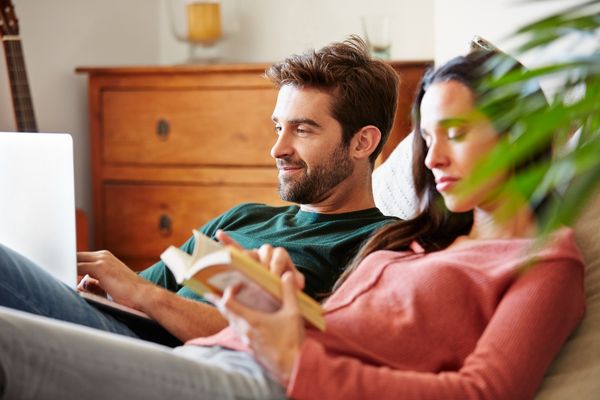
Building a strong and healthy relationship requires open communication, trust, and understanding. However, what happens when your girlfriend starts to feel uncomfortable around you? It's a situation that can be perplexing and disheartening, leaving you with a myriad of questions. In this blog post, we will explore the potential reasons behind this discomfort, offering insights and guidance on how to navigate through such challenging times.
Understanding Emotional Cues
Communication Breakdown
Healthy relationships thrive on effective communication. If your girlfriend feels uncomfortable around you, it could be an indication of a breakdown in communication. This could manifest as unspoken expectations, unaddressed issues, or simply a lack of emotional connection. Take the time to sit down and have an open and honest conversation about your feelings, concerns, and expectations. Active listening is crucial during these discussions to ensure both partners feel heard and understood.
Unresolved Issues
Unresolved issues from the past can fester and create an atmosphere of discomfort. It's essential to identify and address any lingering problems or conflicts in your relationship. Ignoring these issues won't make them disappear; instead, they may intensify and contribute to your girlfriend's unease. Seek resolution through open dialogue, compromise, and a genuine commitment to moving forward.
Personal Insecurities
Everyone carries their own set of insecurities. If your girlfriend is feeling uncomfortable, it might be related to her personal insecurities that have surfaced in the relationship. Encourage her to express her feelings without judgment, and assure her that you are there to support her. Understanding and addressing these insecurities together can strengthen your bond and create a more secure emotional environment.
Navigating Relationship Dynamics
Changing Dynamics
Relationships are dynamic and evolve over time. Your girlfriend's discomfort could be a response to changes in your relationship dynamics. Perhaps there has been a shift in responsibilities, roles, or priorities that has left her feeling uncertain or uneasy. Reevaluate your relationship dynamics together, discussing any changes that may have occurred and finding ways to adapt and grow together.
Balancing Independence and Togetherness
Striking the right balance between independence and togetherness is crucial in a healthy relationship. If your girlfriend feels uncomfortable, it might be a sign that the balance has shifted. Allow each other the space to pursue individual interests and maintain a sense of self, while also nurturing the connection you share. Finding this equilibrium can lead to a more harmonious and fulfilling relationship.
External Stressors
Life is filled with challenges, and external stressors can have a significant impact on your relationship. If your girlfriend is feeling uncomfortable, consider whether external factors such as work, family issues, or health concerns are contributing to her unease. Supporting each other through challenging times can strengthen your bond and create a sense of security.
Fostering Emotional Intimacy
-
Emotional Availability: Emotional intimacy is a cornerstone of a healthy relationship. If your girlfriend feels uncomfortable, it might be a sign that emotional intimacy needs attention. Share your thoughts, feelings, and vulnerabilities with each other to deepen your connection. Create a safe space where both partners feel free to express themselves without fear of judgment. Building emotional intimacy takes time and effort, but the rewards are immeasurable.
-
Quality Time: In the hustle and bustle of daily life, spending quality time together can easily take a back seat. If your girlfriend feels uncomfortable, it might be because the emotional connection between you two has weakened. Dedicate time to activities you both enjoy, whether it's a date night, a weekend getaway, or simple moments of shared laughter. Quality time fosters a sense of closeness and reinforces the bond between partners.
Final Words
In conclusion, addressing the discomfort your girlfriend feels around you requires a combination of self-reflection, open communication, and a commitment to nurturing your relationship. Relationships are intricate and require ongoing effort to thrive. By understanding the emotional cues, navigating relationship dynamics, and fostering emotional intimacy, you can work towards creating a secure and fulfilling connection.
Remember, each relationship is unique, and there is no one-size-fits-all solution. Be patient, empathetic, and willing to grow together. The journey to a healthier and more comfortable relationship begins with a shared commitment to understanding, supporting, and cherishing each other.
